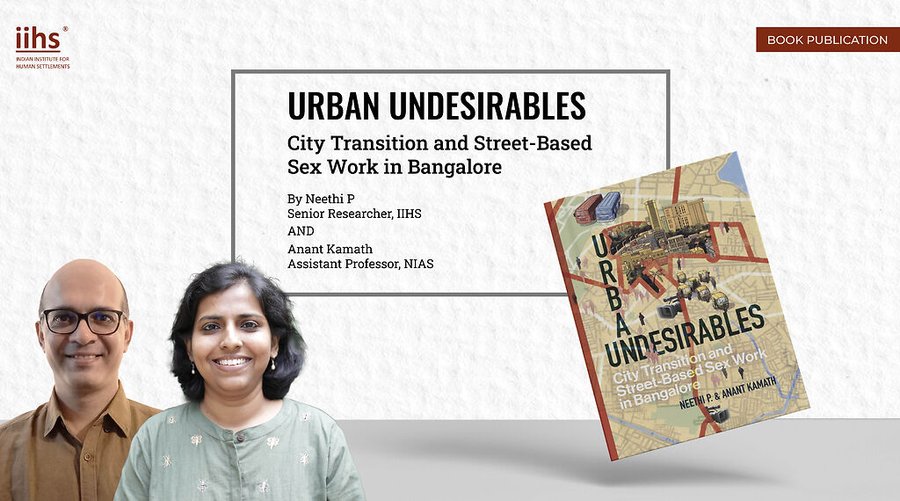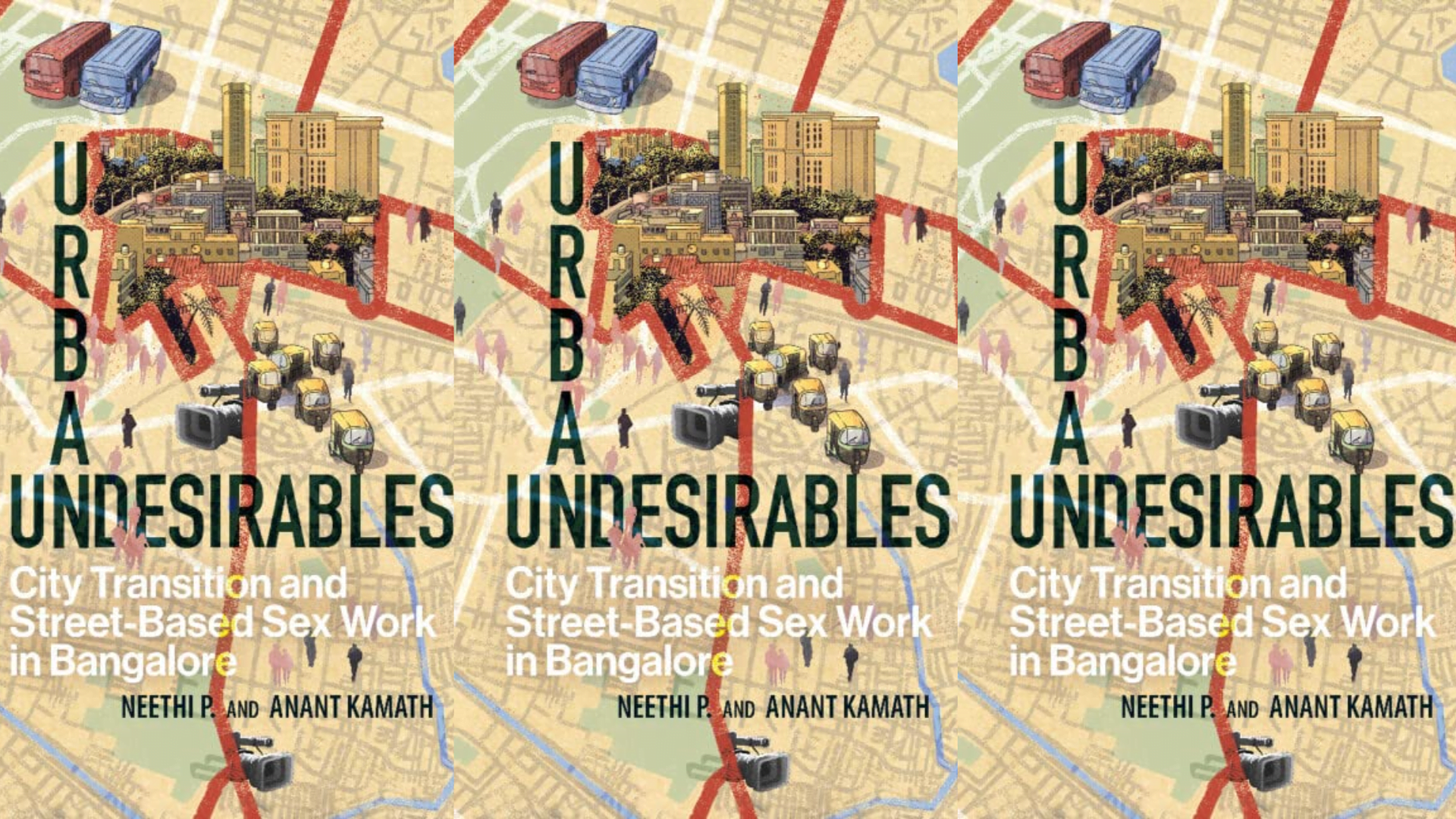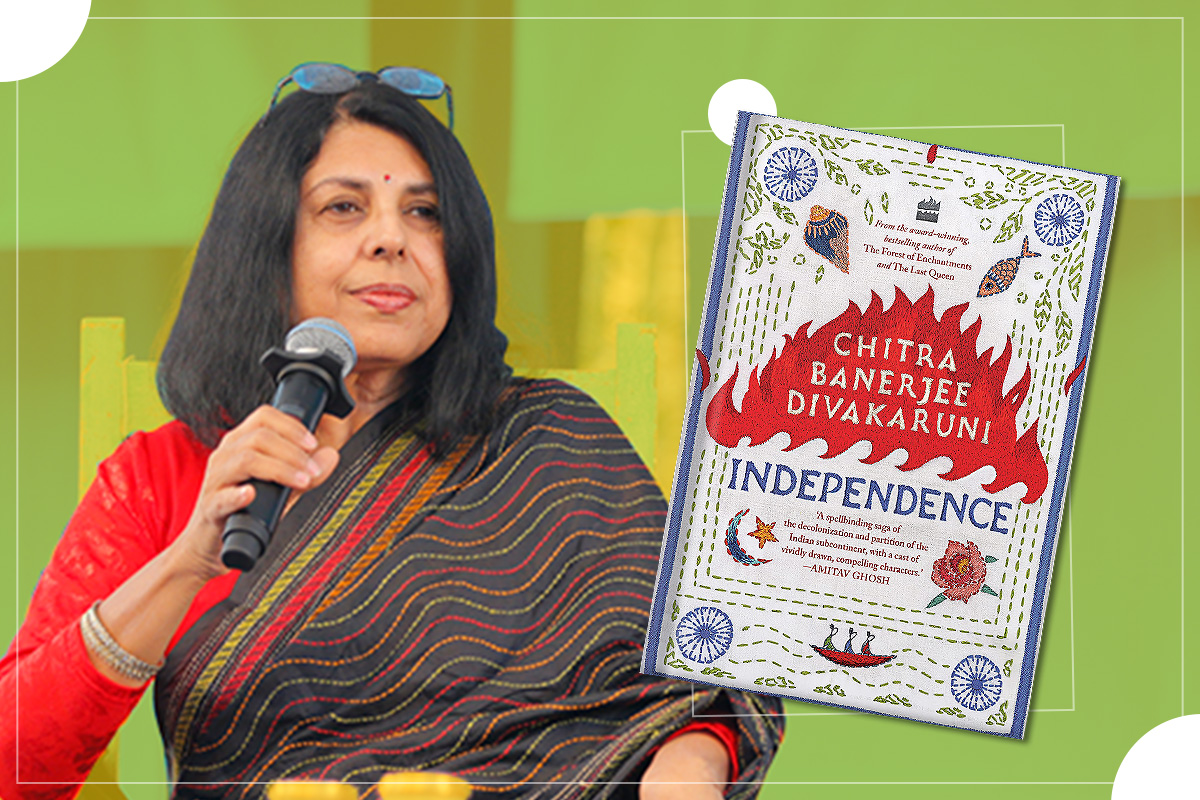Urban Undesirables studies the lives of street-based sex workers in Bangalore and their experience of a city in transition. Unlike Kolkata and Mumbai, where sex workers are associated with ‘red-light areas,’ Neethi and Anant reveal that street-based sex workers are “actually everywhere” in Bangalore and unravel the simmering tensions underneath India’s Silicon Valley’s projected image and actual reality. In their words:
“Cities like Bangalore are reminiscent of a hackneyed Dickensian condition: the best of places, the worst of places, bringing hope, bringing despair, capable of liberating, capable of overwhelming, offering solace, offering turbulence, a heaven, a hell, where one can gain everything, and where one can be left with nothing.”
Urban Undesirables studies the lives of street-based sex workers in Bangalore and their experience of a city in transition. Unlike Kolkata and Mumbai, where sex workers are associated with ‘red-light areas,’
This description captures the lived reality of three groups in Bangalore: citizens, populations, and pseudo-invisibles. Drawing from the work of Partha Chatterjee, the authors identify citizens and populations as first-class and second-class inhabitants who belong to recognisable socio-economic categories and have distinctive rights. But they contend that street-based sex workers are neither citizens nor populations. They are “pseudo-invisibles” who, despite being an “integral part of the human landscape of Bangalore, are seen as unpleasant eyesores in a city conjured up as ‘sleek’ and ‘modern’.”

Urban Undesirables takes the oral histories method to collect the narratives of “five dozen street-based sex workers … in eighteen months of conversations” and presents the urban transition from their viewpoint. Located at the cusp of social and urban studies, the book reminds me of the feminist scholarship on the Indian Partition.
But while the latter focused exclusively on women’s testimonies, Neethi and Anant also capture the voices of men and transgenders who are conveniently sidelined in the dominant sex work studies to understand the impact of neoliberal urbanism over three decades in Bangalore on the lives of street-based sex workers.
They don’t “employ the oral histories method in all its glory” and focus on “micro life histories, that is, oral accounts of twenty to thirty years—much shorter than an entire lifetime.” Through these testimonies, they invite readers to assess their assumptions about what is a ‘modern’ city and who constitutes its ideal public. Ultimately, the book reinstates street-based sex workers into the human cartography of neoliberal urban spaces and leaves us wondering:
“Why must we look only at those elements of sex work that highlight danger, disease, mistreatment, indignity, abuse, and emotional pain, when these are not unique to sex work?”
Neethi and Anant reveal that street-based sex workers are “actually everywhere” in Bangalore and unravel the simmering tensions underneath India’s Silicon Valley’s projected image and actual reality.
As Neethi and Anant note, sex work is a complex and contradictory transaction across time and space and depends “heavily on the structuring roles of culture and class.” Thousands of underprivileged workers leave their homes to engage in sex work and return to spouses, parents, children, and siblings. But sex work is not limited to these pseudo-invisibles alone. Financially well-off citizens engage in sex to exercise their sexual freedom too.
Last month, arielle egozi stirred a heated debate on LinkedIn when she added sex work to their experience on the world’s go-to professional networking platform. In an open letter, egozi shared how sex work empowered them to leave an unsatisfying job and own their personal image. But, unsurprisingly, many saw the queer latina’s attempt to destigmatise sex work as either a marketing gimmick or disguised solicitation.
Globally, BIPOC persons make up a disproportionate percentage of sex workers. Most of them don’t have the privilege to “charge exorbitant amounts” or “engage only in ways that are safe, playful, and abundant.”
As one user rightly pointed out, many of these BIPOC persons may “have histories of childhood sexual abuse, untreated post-traumatic stress disorder” and “come from backgrounds of violence and exploitation.” Unlike egozi, they may not have the privilege to charge for emotional labour in their fees or “set and hold boundaries.”
But what most missed in egozi’s post is astonishingly (and ridiculously) simple. egozi is well-informed and didn’t glamorise sex trafficking or illegal prostitution. Instead, their post attempted to foreground marginal voices that get subsumed under the dominant socio-political and legal discourse on sex work that views participants as passive objects lacking agency. As their repeated use of “i” suggested, it was a personal narrative aimed at debunking our notions of sex work and who engaged in it.
Nalini Jameela made that evident in her memorable memoir Romantic Encounters of a Sex Worker. First published in 2018, the book led readers through Jameela’s shenanigans with a diverse clientele that included police officers, supervisors, forest officers, landlords, small-town lodge managers, field hands, and travelling salesmen. She vividly painted how a sex worker skilfully navigated this oppressive yet emancipatory profession daily.
Jameela portrayed each client as a temporary romantic partner she entertained on her terms. Like egozi, her story highlighted the autonomy and control she wielded while dealing with men.
Deeply personal, her memoir offered a stark look at the ground reality of sex work in Kerala. It restored the voice back to the agential subject and stressed the need to take a nuanced approach and interrogate the mainstream understanding of sex workers as “solitary women standing on streets, soliciting clients.” Neethi P. and Anant Kamath argue the same in their jointly-authored title Urban Undesirables.
Also read: Why Is Sex Work Not Seen As Work? – Part 1
After egozi’s LinkedIn post blew up, she shared the intention behind it on Instagram. In their words, “it wasn’t to inspire. It wasn’t to be radical. It wasn’t to make anyone upset. It was to make space for myself.”
Like them, many others engage in sexual commerce in Bangalore for similar reasons. But if you don’t know any sex workers, it’s probably because, like egozi said, “you haven’t earned the trust for them to tell you, or because your friends are kinda boring.”
Also read: Sex Workers And Feminists: Time To Strengthen Alliances
Featured image source: Amazon
About the author(s)
Kirti writes on gender for FII. She's available at reachkirtigoyal@gmail.com




